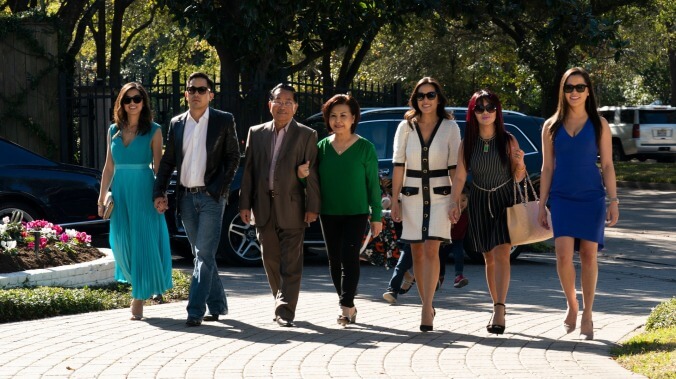HBO Max’s House Of Ho is a bleak portrayal of life as a crazy rich Asian


House Of Ho is HBO Max’s entry into the rapidly growing genre of culturally specific reality series following extremely wealthy Asian multigenerational families. Similar to the Bravo series Family Karma, centered around wealthy multigenerational Indian families in Miami, and Netflix’s Fabulous Lives Of Bollywood Wives, which chronicles the privileged wives of four Bollywood actors, House Of Ho is an eight-episode “docusoap” following the intergenerational culture clashes of the Houston-based Vietnamese multibillionaire Ho family. The series was pushed from a summer premiere to December 10, presumably to align with the timeline within the show, which follows the Ho family members through the holiday season, from late November 2019 through a lavish Lunar New Year celebration in January 2020 (including optimistic references to how amazing the year will be that are not edited out).
Though marketed as being “in the spirit of Crazy Rich Asians,” with the attitude of the Kardashians, House Of Ho is no romantic comedy—and ultimately has little in common with either. While Crazy Rich Asians doesn’t shy away from the toxicity of patriarchy and parental expectations that can often become heavy burdens upon children who must choose between filial duty and personal happiness, the narrative is ultimately hopeful, with some kind of happy ending for most of the female characters. And in Keeping Up With the Kardashians, whatever the drama may be—whether genuine or manufactured—the audience gets the sense that the women of the family are ultimately in control of the narrative we see.
This is not the case with House Of Ho. Though the series employs familiar devices like talking head interviews, a glamorous opening theme song introducing the family members like characters on a scripted show, and punny episode titles (“Ho Sweet Home”, “Ho Lotta Gossip”), it’s more straightforward documentary than a soap opera or scripted reality show. There’s no sugarcoating of the strict collectivist (and sexist) expectations of family patriarch Binh and his wife Hue, and the iron grip they have on the lives of their adult children Judy and Washington, as well their daughter-in-law Lesley. Viewers seeking an entertaining romp through the privileged lives of an incredibly wealthy Asian family will be in for a rude awakening—the series is less about clashing values within different equally outspoken generations than it is an uncomfortable glimpse into how traditional patriarchal structures continue to make the lives of women absolutely miserable, even in the wealthiest families.


![HBO teases new Euphoria, Larry David, and much more in 2026 sizzle reel [Updated]](https://img.pastemagazine.com/wp-content/avuploads/2025/12/12100344/MixCollage-12-Dec-2025-09-56-AM-9137.jpg)





































